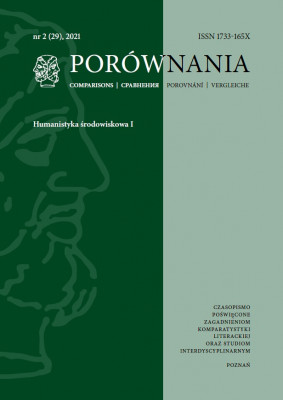“A River is not the Same as Soil, It will Accept Everything”: A Few Notes on the Environmental Conditions of the Holocaust in Serbia
The article aims at demonstrating that in Serbia (as in other countries) the Holocaust did not occur in an environmental vacuum. The considerations focus on the literary representations of the triple relation between nature, the camps’ location and functioning, as well as the fates of the prisoners. The river appears to be of the greatest importance, as it becomes a very prominent Holocaust motif in the Serbian literature. In most cases, a river symbolizes a mass grave, a wall, a curtain, or – in winter conditions – a stage. Hence, it most frequently becomes the Nazis’ involuntary ally. However, apart from this reading of a river – i.e. as a passive component of nature – there are also its representations in the Serbian (and Croatian) literature in which its agential qualities are emphasised. Acting as that, a river moves from the background (usually reserved for environmental conditions) to the foreground, and thus resists those who violate both human victims and nature.
| Article Title | Type | Size |
|---|---|---|
| 11 Giergiel | [pdf] | [119 KB] |
